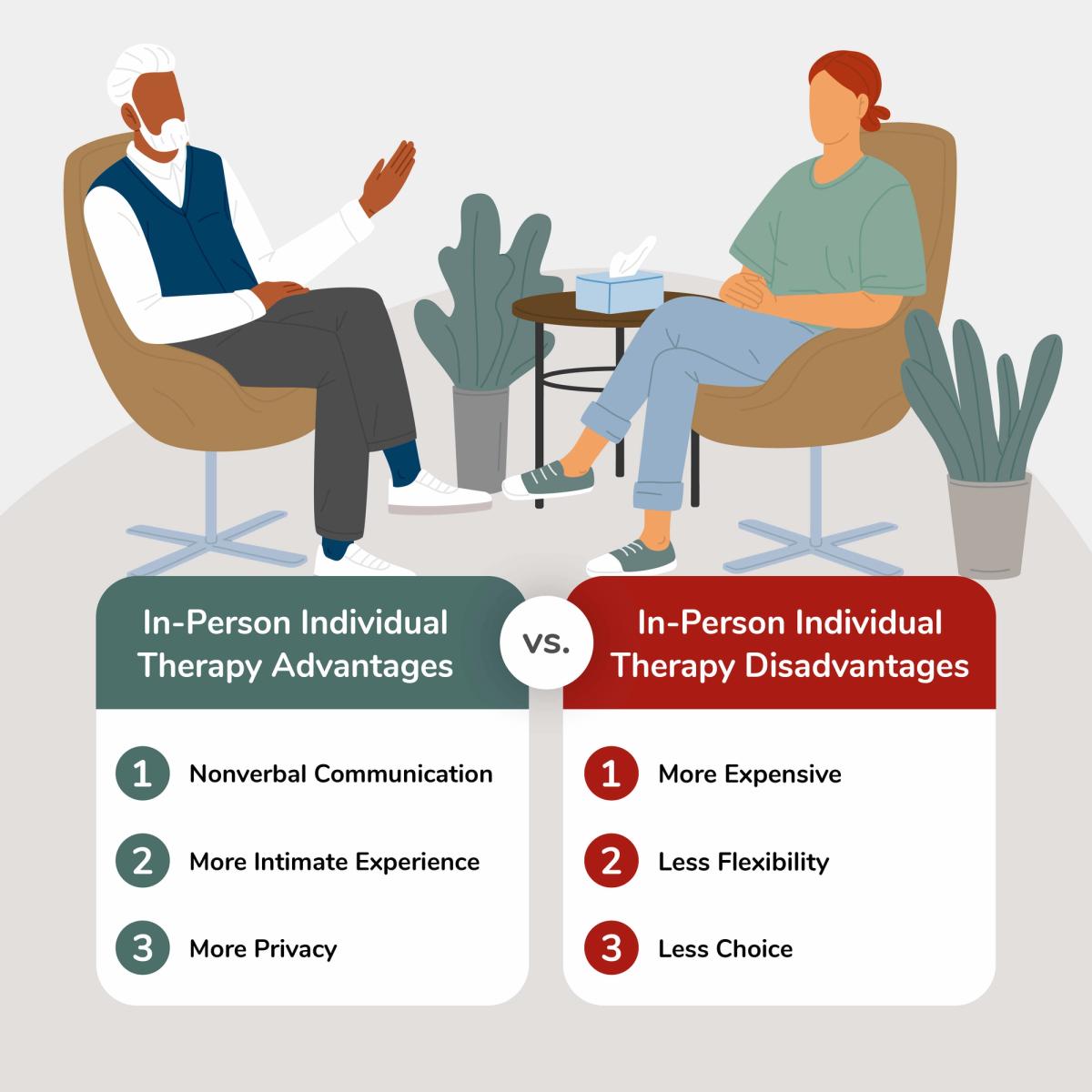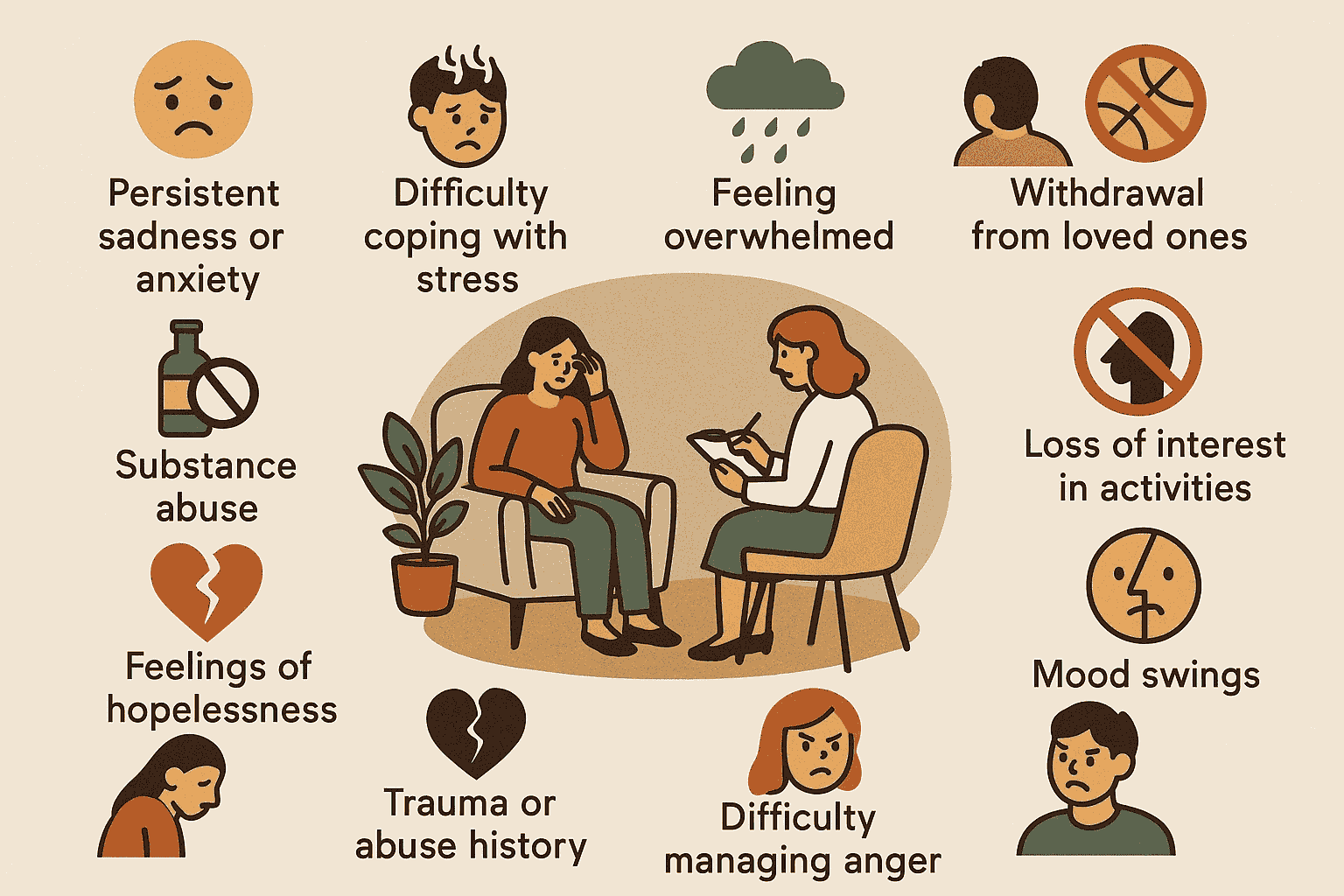Discovering the Benefits of Psychological Treatment for Teenage Health and Growth
Mental treatment plays a crucial function in the wellness and growth of teenagers. Teenage years is a tumultuous duration marked by social and emotional difficulties. Treatment offers an organized environment for teenagers to verbalize their sensations and challenge their struggles. It outfits them with important devices for durability and interaction. As they browse this developmental phase, the impact of therapy can be profound. What particular benefits can arise from such support during these formative years?

Comprehending the Adolescent Mind: Difficulties and Pressures
As teens browse the intricacies of their developmental phase, they deal with countless obstacles and stress that can significantly impact their mental health. This period is marked by considerable physical, psychological, and social changes, which can generate sensations of confusion and uncertainty. Peer influence escalates, often leading to a struggle for approval and identification. Academic assumptions can produce extra stress, as the stress to succeed installs in a progressively competitive environment.
Moreover, the arrival of social media sites presents a brand-new layer of intricacy, where contrasts to curated online characters can exacerbate feelings of insufficiency and anxiousness. These factors can bring about emotional distress, consisting of stress and anxiety, depression, and reduced self-worth. Comprehending these challenges is important for moms and dads, teachers, and psychological health experts, as it provides understanding right into the adolescent experience and highlights the demand for supportive interventions to cultivate strength and well-being throughout this vital developmental stage.
Developing a Safe Space for Expression
Creating a risk-free room for expression is necessary for adolescents maneuvering their turbulent developmental phase. In therapeutic settings, this atmosphere promotes open discussion, allowing teenagers to interact their sensations without concern of judgment. Such rooms enable them to discover their emotions and ideas, which is crucial for understanding their identities and experiences.
When teenagers feel safe, they are more probable to share their battles, including anxiousness, clinical depression, or interpersonal disputes. This open interaction can bring about much deeper understandings and facilitate individual growth.
A safe area urges creative thinking and self-reflection, providing teens the flexibility to share themselves through numerous outlets, such as art or writing. Establishing count on in between the therapist and the teenage is important, as it underpins the efficiency of the restorative procedure. Inevitably, creating a secure area for expression acts as a structure for psychological recovery and individual growth throughout these developmental years.
Creating Coping Methods and Durability

Therapists frequently introduce strategies such as mindfulness, journaling, and analytical skills, enabling teenagers to handle their reactions more effectively. In addition, by participating in role-play situations, they practice just how to manage challenging situations, enhancing their confidence. Over time, these abilities promote a sense of firm, gearing up teenagers with the tools to browse life's uncertainties. The growth of durability not just aids in overcoming prompt challenges yet likewise lays the groundwork for much healthier emotional actions in adulthood, inevitably contributing to long-lasting well-being.
Enhancing Interaction Skills
Efficient communication skills are essential for teens as they navigate complicated social landscapes. Psychological therapy plays a vital role in boosting these skills, allowing teenagers to share their thoughts and feelings extra clearly. With led sessions, therapists motivate teenagers to articulate their sensations, facilitating much better understanding in peer communications and family members dynamics.
Therapy supplies a secure space for practicing active listening, empathy, and assertiveness. These abilities encourage young adults to take part in meaningful conversations, willpower problems, and construct more powerful relationships. As they learn to interact successfully, they additionally obtain self-confidence in their ability to advocate for themselves and their needs.
Furthermore, enhanced communication skills add to emotional intelligence, enabling teens to respond and acknowledge to the emotions of others. This alternative advancement promotes a helpful environment, ultimately promoting overall well-being and social integration. Through psychological treatment, young adults can grow these necessary abilities for a healthier social experience.
Fostering Personal Development and Self-Discovery
Cultivating individual growth and self-discovery in teens involves a multifaceted approach that urges understanding of individuality. This process also stresses the value of building resilience abilities and boosting emotional awareness. With each other, these components produce a foundation for healthier, extra certain individuals as they navigate their developmental years.
Understanding Individual Identification
How do young adults browse the complex landscape of individual identification as they strive for self-discovery and development? During this formative duration, they come to grips with various impacts, including peers, family members, and societal assumptions. Mental therapy More about the author can offer as a necessary tool, supplying a safe room for exploration and representation. Through led conversations, young adults can verbalize their sensations and thoughts, permitting them to comprehend their worths, beliefs, and needs. This procedure promotes a much deeper understanding of their special identification, equipping them to make informed choices and develop a sense of objective. As they take part in self-discovery, they discover to embrace their uniqueness and browse challenges with greater quality, inevitably boosting their overall well-being and individual development.
Structure Resilience Skills

Enhancing Emotional Awareness
Enhancing psychological recognition is vital for teens navigating the complexities of teenage years, as it permits them to determine and comprehend their feelings better. By participating in mental therapy, teens discover to recognize their psychological actions and the triggers behind them. This process fosters individual growth and self-discovery, enabling them to express their emotions and cope with obstacles much more adeptly. As teenagers develop psychological understanding, they cultivate compassion, improve partnerships, and improve communication abilities. Furthermore, this enhanced understanding aids in decision-making, aiding them navigate public opinions and develop a feeling of identity. Inevitably, promoting psychological understanding via therapy can bring about healthier coping devices and a much more well balanced emotional state, basic for flourishing throughout these formative years.
Structure Healthy Relationships and Assistance Equipments
While passing through the intricacies of adolescence, constructing healthy connections and support group is important for young adults. These connections offer psychological stability and a sense of belonging, essential during this developing phase. Favorable relationships with peers, household, and coaches can boost self-esteem and durability, enabling teenagers to browse obstacles much more successfully.
Psychological therapy plays a critical duty in cultivating these relationships by gearing up teens with interaction and conflict-resolution skills. Through therapy, they discover to share their sensations, understand different perspectives, and establish limits, which are essential for keeping healthy and balanced communications.
Moreover, supportive networks motivate teens to look for assistance when required, minimizing seclusion and advertising psychological health. They are much more likely to engage in constructive actions and make educated choices when teenagers feel connected to their support systems (Individual Therapy Toronto). In general, the cultivation of healthy partnerships and assistance systems contributes in promoting teenage health and individual growth
Regularly Asked Concerns
How Do I Locate a Competent Specialist for My Teen?
To find click this site a certified therapist for a teen, one should look for recommendations from medical care suppliers, research qualifications online, inspect reviews, and establish the therapist focuses on teenage problems, cultivating a supportive setting for growth.
What Are the Expenses Connected With Mental Treatment for Teenagers?
The costs related to psychological therapy for teenagers differ widely, normally varying from $50 to $250 per session. Insurance protection, gliding scale fees, and regional sources can affect affordability and availability for family members seeking support.
Exactly How Usually Should Teenagers Attend Therapy Sessions?
Young adults need to ideally attend therapy sessions regular or biweekly, relying on specific demands. Consistent sessions can foster a risk-free area for expression, while enabling specialists to check progress and adjust methods effectively with time.
Can Therapy Be Effective for All Teens?
Therapy can be effective for many teens, but individual results vary. Factors such as personal situations, openness to the process, and the therapeutic approach employed all influence its effectiveness for each and every teenage.
What Should Moms and dads Do Throughout Their Teen's Treatment Process?
Parents should actively sustain their young adult's treatment process by maintaining open communication, valuing discretion, participating in sessions if invited, and motivating their youngster's efforts (Individual Teen Counselling). Recognizing and persistence are vital as teens navigate their individual growth journey
Psychological therapy plays a critical role in the health and growth of teenagers. By involving in mental therapy, teens discover to recognize their check my reference psychological actions and the triggers behind them. Mental treatment plays a critical role in cultivating these connections by equipping teens with communication and conflict-resolution abilities. Teens should preferably attend treatment sessions weekly or biweekly, depending on specific requirements. Moms and dads ought to proactively support their young adult's therapy procedure by preserving open interaction, appreciating discretion, going to sessions if welcomed, and encouraging their youngster's efforts.